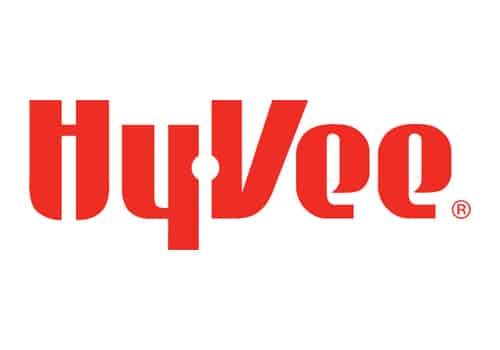Business issues to watch in the 2025 legislative session
A look at Iowa lawmakers' top economic priorities

Mike Mendenhall Jan 20, 2025 | 4:30 pm
5 min read time
1,269 wordsAll Latest News, Government Policy and LawIowa House and Senate Republicans’ desire for more changes to the state’s property taxes has been a focus for business groups and the state’s GOP leadership in the lead-up to and early days of the 2025 legislative session.
“At the end of this session, I think that one thing you will see get done is reform on our property tax system,” Sen. Mike Bousselot, R-Ankeny, said during the Greater Des Moines Partnership’s annual Legislative Leadership Breakfast on Dec. 3.
Iowa Gov. Kim Reynolds said during her Condition of the State address Jan. 14 that finding local government efficiencies, a charge of her proposed state-level Department of Government Efficiency, or DOGE, will be linked to the success of any property tax reform effort.
Iowa House and Senate Democrats, who went into this session with their smallest number of caucus members in years, are cautious of more changes in the property tax system.
“[When] we’re talking about taxes and tax property taxes, we want to make sure that we’re talking to local communities as well, to make sure you don’t get left high and dry when the time comes to pay for the roads in your community,” Iowa House Minority Leader Jennifer Konfrst said at the Partnership event. “We want to make sure that we’re having a community conversation about this, not a top-down approach.”
Here are more of the top economic priorities that lawmakers from both parties discussed at the Partnership event in December.
Health care access and Medicaid work requirements
Bousselot said Republican lawmakers intend to work this session on legislation that would add work and workforce training requirements to Iowa’s Medicaid Health and Wellness Plan system.
“And this would simply say that like we do in other programs, and like we do for unemployment, that you have to seek job training or seek a job to continue to receive those benefits,” Bousselot said on Dec. 3.
The senator’s comments have since been bolstered by Reynolds, who proposed during her Condition of the State address that Iowa apply for a federal waiver to institute work requirements for “able-bodied adults” on Medicaid.
Reynolds also proposed a review of Iowa’s Medicaid rate model to take into account providers’ needs. She said in her address that she will direct the Iowa Department of Health and Human Services to seek federal approval to provide more rate flexibility in the state’s low-income health insurance program “with the goal of incentivizing creative regional partnerships that can better support our health care providers and improve services.”
The governor said she wants to see Iowa “unbundle” reimbursements to hospitals regardless of a patient’s pregnancy risk level and increase reimbursement to OB-GYNs and primary care physicians. She also said lawmakers should increase rates for certified nurse midwives and add doula services as a covered benefit.
Workforce attraction and retention
Iowa Senate Minority Leader Janice Weiner said the Democratic caucuses will work this session to push for more expansion of apprenticeship programs in the state. “Expanding apprenticeship programs is good for the state and it’s good for our young people,” Weiner said. “They tend to be entries into high-wage jobs. They don’t necessarily require a college degree, and we definitely need those jobs. The older generation of plumbers and pipefitters and carpenters are retiring.”
In 2024, the governor signed Senate File 2411 into law to increase work-based learning programs in Iowa and established a State Apprenticeship Agency to oversee all registered apprenticeship programs in the state.
House Majority Leader Matt Windschitl said he’d like to see an expansion of public-private partnerships between businesses and schools to conduct job training courses outside the traditional classroom setting. Konfrst said officials should determine if programs like the Des Moines Public Schools Central Campus, which provides skilled trade, engineering and other job-training courses, could be scaled and expanded statewide.
Business incorporation
Bousselot said lawmakers want to make it easier for businesses to incorporate in Iowa and not have to go through the courts in Delaware and other states. “We’re going to propose taking a pilot business court program, which has been in existence since 2014 … formalizing that so it’s not outdated, rather, it is part of the process, and having a dedicated business court for businesses in Iowa to have certain types of disputes resolved. [It’s] something other states have done — other states have done it successfully. … It can lead to more businesses being incorporated successfully,” he said.
Energy costs
In recent years, state officials have discussed energy as an economic development tool and an incentive for businesses to expand and relocate to the state. Bousselot told the Business Record before the 2024 legislative session that he wanted to see the state pursue companies exploring alternative forms of energy like hydrogen. In her address last week, Reynolds said she wants to create a task force to explore the possibility of nuclear energy in Iowa.
Bousselot said he wants to see legislative work to make rates more uniform across the state. In Central Iowa, he said rates are competitive with other regions.
“But we do have challenges in terms of not only what that looks like if you’re in Ottumwa versus Fort Dodge based on your energy provider. But we also have challenges in terms of what’s that going to look like long term,” he said. “We need to make sure that we’re providing a stable regulatory environment for our energy providers so that Iowans know what they’re going to get for their bills. It’s important for people who want to come in and build that factory, for people who want to come in and start looking at new industries, like the development of hydrogen. And that is an energy policy that they know what they’re going to get, that we have low-cost, reliable, sustainable energy for Iowa businesses because that’s a major cost when you’re talking about manufacturing, when you’re talking about new energy, or value-added agriculture, which has always led the way in Iowa.”
Affordable housing and building codes
According to Konfrst, Iowa House Democrats have proposed a $15 million tax credit to incent developers to build more affordable housing units in Iowa, which would leverage $23 million in federal dollars toward those projects. She said Democrats also support expanding a first-time homebuyers’ savings account that’s tax-free, and explore ways to make repurposing vacant office spaces for housing more feasible.
Konfrst said the state should also provide funding for existing homeowners to bring their homes up to code and allow them to stay.
Bousselot said state lawmakers also plan to examine the “patchwork quilt of building regulations” in different cities and counties throughout Iowa and make them more uniform to reduce homebuilding costs.
State revolving infrastructure loan fund
Bousselot said lawmakers could also consider a proposal this session to create a state revolving loan fund program that could be used by cities, counties and local entities for low-interest gap funding for public, quality of life infrastructure projects. He said improvements in water, sewer and airport services could benefit from this as a secondary source of capital.
“It wouldn’t be the main source of funding. It wouldn’t be the first set of loans or bonding, but it would be that last bit that gets it over the line, and it would be a revolving fund,” he said. “So that’s important because it’s sustainable. It’s not just a grant, it’s not just a one-time money. This has to be a project that has jobs and has ongoing revenue because they’re going to pay this debt back at a low interest rate, back into that revolving fund. That fund grows over time and allows more infrastructure projects to get built throughout our state.”

Mike Mendenhall
Mike Mendenhall is associate editor at Business Record. He covers economic development, government policy and law.









